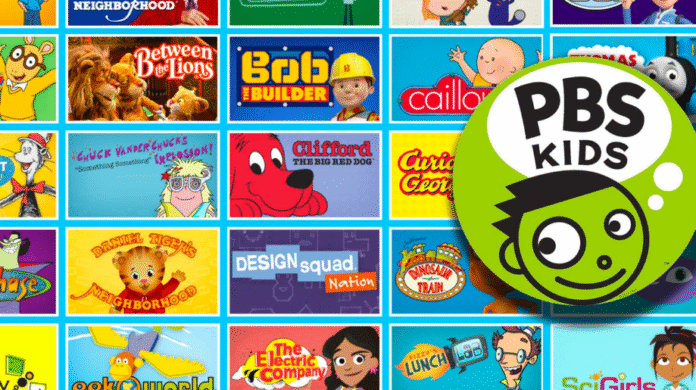By Manha Masood
Under our current administration, funding for PBS and public broadcasting has once again been on the chopping block. This is more than just a budget decision; it’s a dangerous step backward for children’s education, literacy, and opportunity in America. Cutting funds to PBS, especially PBS Kids, undermines one of the most powerful and historically significant tools ever created for public education.
PBS (Public Broadcasting Service) was born out of the Public Broadcasting Act of 1967, signed by President Lyndon B. Johnson as a part of his Great Society agenda. This act established public broadcasting in the U.S. with a core mission: to provide noncommercial, educational, and universally accessible programming. It created the Corporation for Public Broadcasting (CPB), which supports both PBS and NPR (National Public Radio). PBS Kids was the first television platform in American history aimed at educating the masses, free from commercial use, free from advertising pressure, and focused entirely on helping children grow intellectually and emotionally.
PBS Kids offered something revolutionary: high quality, research backed educational content that was freely available to all children, no matter where they lived or how much money their families made. For children in rural areas and/or low- income neighborhoods where schools are often underfunded or education wasn’t seen as a priority, PBS was and remains a critical educational resource. Before digital learning and before high-speed internet, there was Sesame Street, Super Why, and The Cat in the Hat Knows a Lot About That. Personally, growing up with these shows, I remember learning things like the colors of the rainbow or the importance of bees through their fun and engaging lessons. In a way that no other network has done or continues to do, these shows taught children letters, numbers, empathy, curiosity, and cultural awareness. These lessons remain with the masses of kids long after they have grown out of the age range, showing the immense relevance these shows have.
Countless American children were introduced to literacy for the very first time through PBS Kids. It taught them the sounds of letters, how to read simple words, how to understand stories, and how to love books. And it didn’t stop at reading; PBS programming has covered math (Cyberchase), science (Dinosaur Train, Sid the Science Kid), social studies (Liberty’s Kids), and emotional wellness (Daniel Tiger’s Neighborhood). The number of educational programs PBS Kids has created is almost too vast to list, and each one is grounded solely in educational purposes.
Today, the United States faces a childhood literacy crisis. Millions of children are behind in reading levels, especially after pandemic-related school disruptions. Cutting funding for educational broadcasting during a time of mass literacy deficits is not just shortsighted; it’s irresponsible. It hurts families who rely on PBS for homeschooling, early learning, and even supplemental help for kids with learning differences. It hurts teachers who use PBS resources in classrooms, and it especially hurts children who don’t have access to books, tutors, or Wi-Fi at home.
Public television remains one of the few educational tools that reaches every corner of the country: urban, rural, rich, poor, English-speaking, and multilingual. It doesn’t ask for a subscription, a login, or a credit card. It just shows up on your screen, ready to teach, inspire, and support.
If we truly believe in equal opportunity, if we claim to care about education and children’s futures, then cutting PBS funding should never be on the table. It’s not just bad policy. It’s an attack on the foundation of public education, childhood development, and the American promise of equal education for all.

